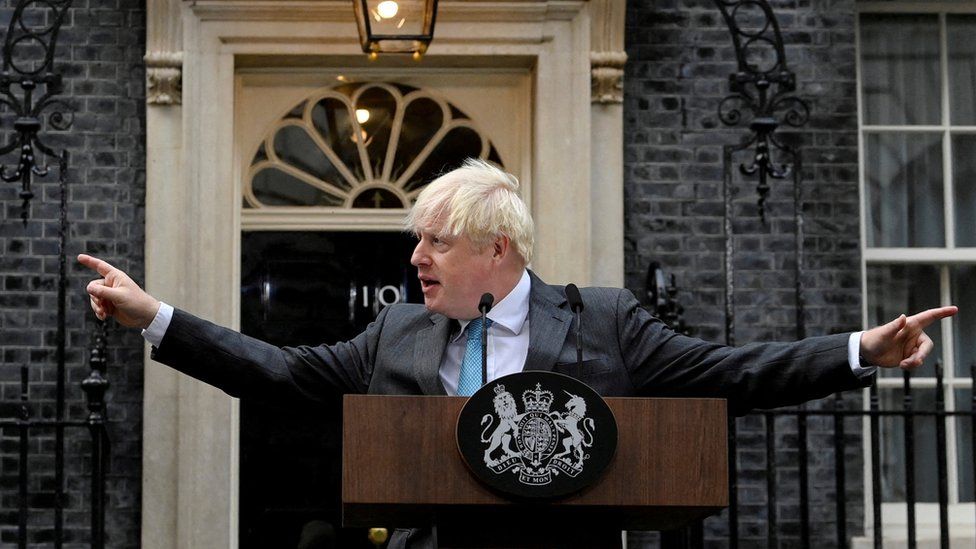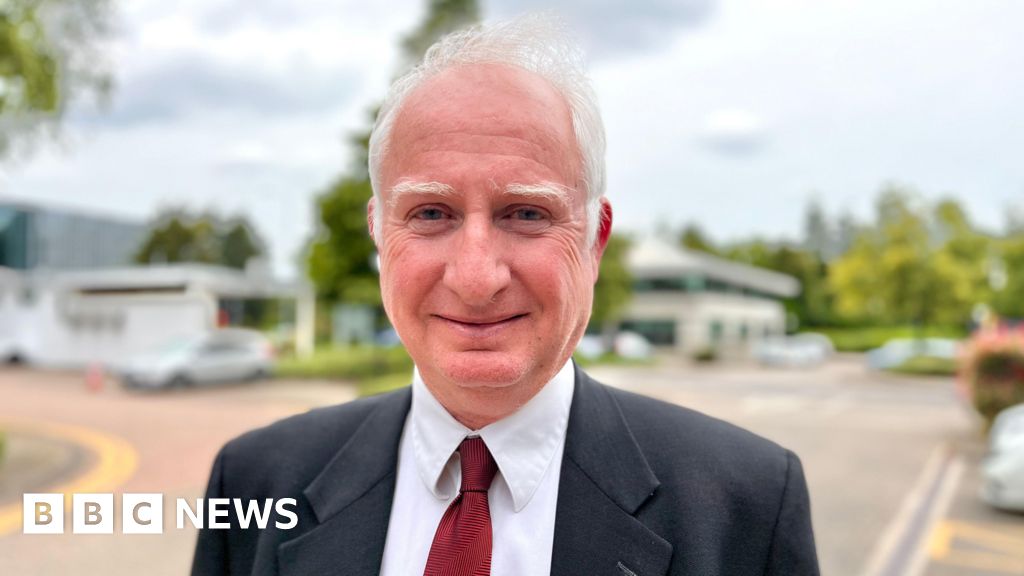ARTICLE AD BOX
 Image source, Reuters
Image source, Reuters
By Sam Francis
Poltical reporter, BBC News
Boris Johnson, the man ousted as UK prime minister by his own government just three months ago, has emerged as an early front-runner to be the next prime minister.
His replacement Liz Truss crashed and burned after 45 days in the job, announcing her resignation after being forced to ditch most of the policy programme after it spooked the financial markets.
Mr Johnson won the 2019 general election - and under the British constitution the party in power can change leader without another election.
Ms Truss was elected by Conservative Party members, who may get the final say in this latest contest, if two contenders remain after MPs have voted.
A second Johnson premiership would be an extraordinary turnaround even for a politician who has made miraculous comebacks before.
And it is by no means certain that he will stand - he has yet to make his mind up, we are told.
Though according to his father Stanley the former prime minister may already be on a plane back to the UK from his holiday in the Dominican Republic.
Will Walden, a former press secretary to Mr Johnson, told Sky News Mr Johnson is "clearly taking soundings" on a leadership bid.
One of his most loyal supporters, Business Secretary Jacob Rees-Mogg has launched a social media campaign to get him back in Downing Street, and dozens of Conservative MPs have publicly backed him.
Party rules for the leadership contest mean hopefuls need the backing of at least 100 Tory MPs by Monday afternoon to stay in the race.
On the face of it, this is no small task for a man who had 148 of his colleagues vote against him in a confidence vote in June - followed by nearly 60 ministerial resignations one month later.
The final months of Mr Johnson's time in office were dogged by accusations ignored complaints of sexual misconduct against Chris Pincher before hiring him as deputy chief whip.
The government's ethics advisor quit saying there was a "legitimate question" about whether Mr Johnson broke ministerial rules over Partygate.
He remains under investigation by the Parliamentary Standards Committee for misleading parliament over parties he attended during lockdown.
A series of scandals and questions of personal conduct brought down Mr Johnson. Could MPs who found him unsupportable six weeks ago find him acceptable now?
Mr Johnson has kept a surprisingly low profiled since leaving office. He has spoken sparingly in the House of Commons and spent the past few weeks doing a speaking tour of the US before heading on holiday.
But as Mr Johnson's biographer Andrew Gimson points out he is not the sort of person to "live a life of blameless obscurity".
If only a single candidate emerges the contest will be over on Monday - if not the new leader will be chosen by a vote from party membership on Friday 28 October.
Polls taken in the final days Liz Truss' premiership have consistently shown Mr Johnson as the most popular successor.
Patrick English, Associate Director of polling company YouGuv, said the Conservative party are calling out for "someone who can provide unity and pull the party back together and compete again (Labour leader) Keir Starmer.
"If you ask the members who that could be - it is Boris Johnson," Mr English said.
"If Johnson goes to the final two, he's got the edge."
Boris Johnson has refused to rule out political comeback
A Boris Johnson candidacy could also work in favour of other candidates, according to Mr English.
Rishi Sunak and Penny Mordaunt, who stood unsuccessfully in the contest to replace him, are also seen as likely contenders to run again.
"I think if we're talking about unity and decisive candidates Mr Sunak and Mr Johnson epitomise one of the biggest splits in the party right now," Mr Johsnon said.
"They are so identified with their own factions that I think Ms Mordaunt will be able to come through the middle and make the case she is the unity candidate."

 2 years ago
15
2 years ago
15








 English (US)
English (US)